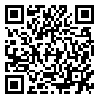Volume 7, Issue 41 (10-2020)
erj 2020, __(41): 140-162 |
Back to browse issues page
Download citation:
BibTeX | RIS | EndNote | Medlars | ProCite | Reference Manager | RefWorks
Send citation to:



BibTeX | RIS | EndNote | Medlars | ProCite | Reference Manager | RefWorks
Send citation to:
Adelzadeh Naeini F, norouzi R A, rahmani J. Developing a model of Farabi's rational education with an emphasis on intellectual reason. erj 2020; 7 (41) :140-162
URL: http://erj.khu.ac.ir/article-1-845-en.html
URL: http://erj.khu.ac.ir/article-1-845-en.html
1- Phd student, Isfahan (Khorasgan) Branch, Islamic Azad University, Isfahan, Iran
2- , Education Department, University of Isfahan, Iran ,r.norouzi@edu.ui.ac.ir
3- Isfahan (Khorasgan) Branch, Islamic Azad University, Isfahan, Iran
2- , Education Department, University of Isfahan, Iran ,
3- Isfahan (Khorasgan) Branch, Islamic Azad University, Isfahan, Iran
Abstract: (7288 Views)
The general objective of this research is provide a model, including goals, principles, and rational education methods of Farabi's rational education in Theoretical reason. We have benefitted from Frankena's inference method in this research. In the first stage, materials were investigated by qualitative content analysis method and deductive categorization system. With regard to the results obtained from the above methods, the next stage dealt with determining realistic statements. Finally, the objectives, principles and methods of rational education were identified using Frankena's inference method by taking into account Farabi's view on theoretical reason. We have concluded that the ultimate goal of Farabi in rational education is to achieve Allah as the first agent of happiness. In the area of theoretical reason, the intermediary goals of rational education includes the attainment to the existential status of active intellect and the climax of theoretical reason and Mostafad reason, the completion of the stages of reason and access to pure incorporeity and total actuality, attainment to the complete knowledge through the power of the imagination and speech, development of thinking skills in the theoretical. The principles of rational education in the field of theoretical reason are as followings: intrinsic competence, education, guidance, the necessity of education, combining opinion and practice, reasoning and thinking. The methods of rational education in the domain of theoretical reason include learning philosophy, induction, allegory, analogy, modeling, science, artistic creation, wisdom, reasoning and reflection.
Keywords: Theoretical reason, rational education goals, Principles of rational education, intellectual education methods, Farabi
Type of Study: Research Paper |
Subject:
Educational Philosophy
Received: 2020/07/14 | Revised: 2021/02/8 | Accepted: 2021/01/6 | ePublished: 2021/01/6
Received: 2020/07/14 | Revised: 2021/02/8 | Accepted: 2021/01/6 | ePublished: 2021/01/6
Send email to the article author
| Rights and permissions | |
 |
This work is licensed under a Creative Commons Attribution-NonCommercial 4.0 International License. |






